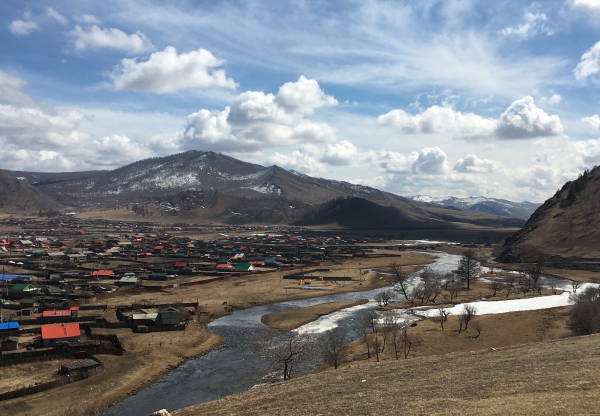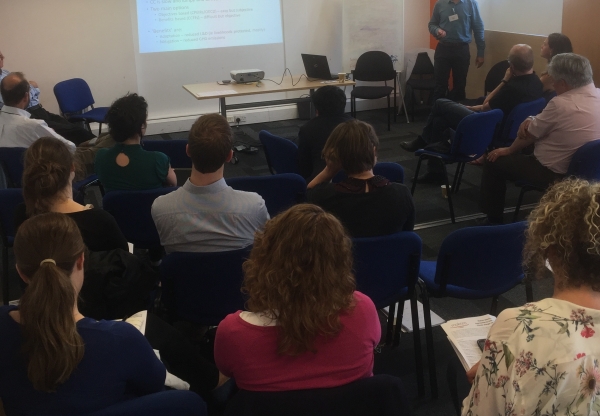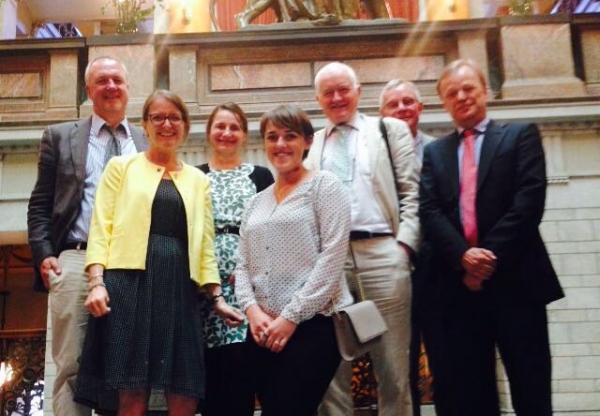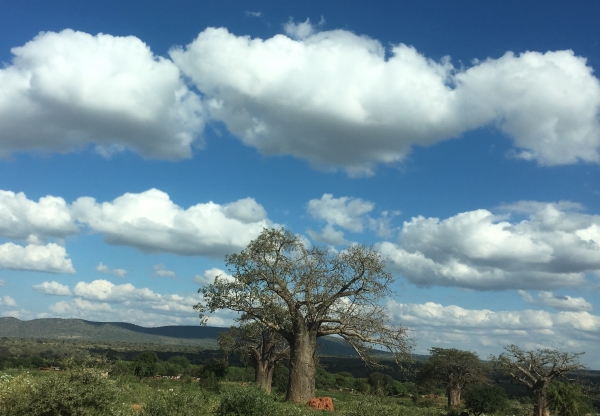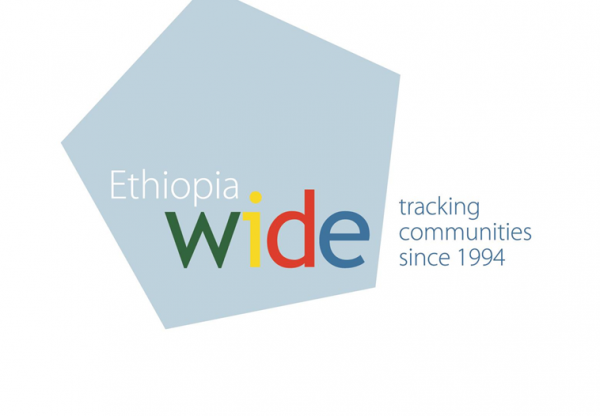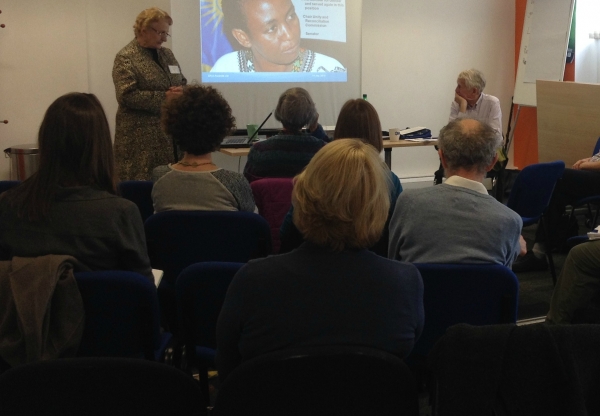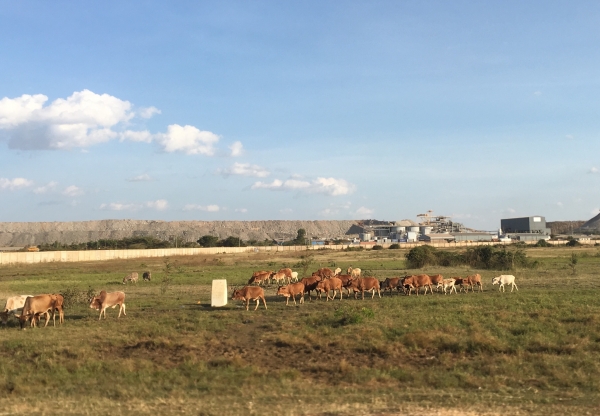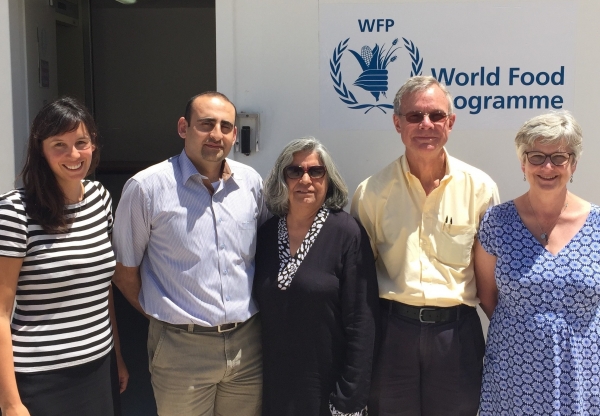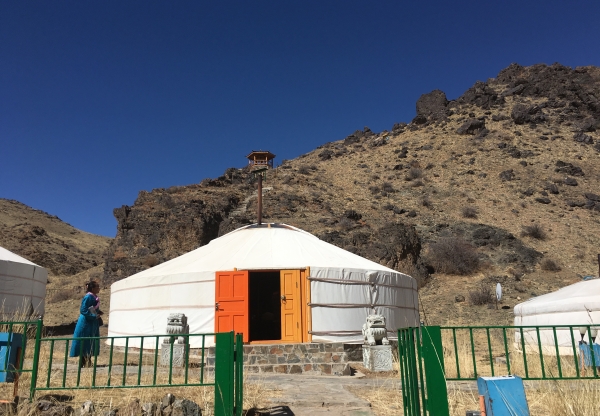Mokoro
Supporting international development
News
10 August 2016
Mokoro’s WOLTS Project – our multi-country action-oriented strategic research project in support of women’s land rights – has commenced baseline surveys in both the countries that are the focus of our pilot study. In Mongolia the baseline began in two soums at the end of July, while in Tanzania it is getting underway in two villages this week. Teams from our NGO partners, People Centered Conservation in Mongolia and Haki Madini in Tanzania, are now out in the field conducting interviews with members of pastoralist communities whose land rights are being affected by mining investments. Read more about WOLTS here.
14 July 2016
On 11 July, Mokoro hosted a seminar on approaches to measuring climate resilience. The event was chaired by Stephen Turner and presentations were given by Mokoro’s Principal Consultant Kit Nicholson, as well as Stephen Anderson and Mark Lawrence from the Food Economy Group. More information and presentations are available here.
27 June 2016
A Mokoro team, led by Principal Consultant Alta Fölscher, visited Helsinki in mid-June to present the findings of the Evaluation of Finland’s Development Cooperation Strategies and the Country Strategy Modality. This evaluation, the largest in Mokoro’s history, was carried out in partnership with Indufor on behalf of the Ministry of Foreign Affairs of Finland. The purpose of the evaluation was to provide evidence-based information and practical guidance for the next phase of the Country Strategy Modality. This included how to improve results-based management in country programming for management, learning and accountability purposes; and how to improve the quality of implementation of Finnish development policy at the partner country level. As such, comprehensive country strategy evaluations took place in Ethiopia, Mozambique, Nepal, Tanzania, Vietnam and Zambia.
Whilst in Helsinki, the team presented the results of the evaluation including cross-cutting themes emerging from the individual country studies. Recommendations were offered for Finland’s future development cooperation.
Finland’s development cooperation encompasses a range of sectors and required a diverse and experienced team to carry out the evaluation which began in September 2015. Core team members included Alta Fölscher, Lilli Loveday, Stephen Lister, Nick Maunder, Stephen Turner, Muriel Visser, Ann Bartholomew, Gadissa Bultosa, Kumar Upadhyaya and many others from our partners at Indufor.
You can read more about this assignment, including the team’s presentation in Helsinki, here.
23 May 2016
Mokoro is excited to announce Haki Madini as partners for WOLTS – our multi-country action-oriented strategic research project in support of women’s land rights. Haki Madini is a rights based non-profit making organisation working in the mining sector of Tanzania and will be partnering with Mokoro for our pilot study in pastoralist communities whose land rights are being affected by mining investments. Haki Madini works at the local, regional and national level to connect stakeholders for collective engagement to protect and support the rights of small-scale miners, and it has a strong commitment to addressing issues of gender equality. Haki Madini’s Gender and Mining Program has been addressing issues affecting women in the mining sector through women’s leadership and capacity development work, and we look forward to a fruitful collaboration that builds on this work. Read more about WOLTS here.
4 May 2016
The Ethiopia WIDE team have published a second series of “Discussion Briefs,” written in 2015/16, which review evidence from longitudinal research of twenty rural communities in Ethiopia related to a range of specific sectors or issues; and which are intended as resources for further deliberation about how to improve outcomes from Ethiopia’s model of transformation. The papers present and analyse patterns of evidence that recur across all or several of the 20 WIDE communities, focusing on policy considerations emerging from evidence that transcends anecdote.
The briefs and their authors are as follows:
- Introducing Ethiopia WIDE and its policy relevance, Sarah Vaughan
- Rurbanisation, urban expansion into rural areas, and thickening rural-urban linkages, Pip Bevan, reviewed by Tegegne Gebre Egziabher
- Differentiation and inequalities in rural communities, 2010-13, Alula Pankhurst with assistance from Theodros W Giorgis, reviewed by Dessalegn Rahmato
- Youth transitions to adulthood in rural communities, 2010-13, Alula Pankhurst with assistance from Nathan Nigussie, reviewed by Yisak Tafere
- Education in rural Ethiopia 2010-13: aspiration and uncertainty, Catherine Dom, reviewed by Setotaw Yimam
- Changing patterns in maternal and infant health and wellbeing in rural Ethiopia from 2003- 2013, Pip Bevan, reviewed by Helen Andemikael
- Economic participation of women and girls in rural Ethiopia, 2010-13, Lilli Loveday with Catherine Dom, reviewed by Emebet Mulugeta
- Moving for work from rural communities, 2010-2013, Catherine Dom, reviewed by Asnake Kefale
- Insights on economic success in rural Ethiopia, 2010-2013, Tefera Goshu with Catherine Dom, reviewed by Ezana Amdework
- Diffusion of knowledge, learning, “technology transfer” and change in rural communities, Sarah Vaughan, reviewed by Zerihun Mohammed.
View the papers on the Ethiopia WIDE website.
The authors (Pip Bevan, Catherine Dom, Tefera Goshu, Lilli Loveday, Alula Pankhurst and Sarah Vaughan) are grateful for the funding from the UK Department for International Development, Irish Aid and the Swedish International Development Agency that allowed them to prepare these briefs.
15 April 2016
On Wednesday 13 April, Mokoro was visited by Professor Shirley Randell who gave a fascinating presentation on the impact of women’s political leadership on democracy and development in Rwanda. Over the last ten years, Shirley has worked extensively in Rwanda, including establishing the Centre for Gender, Culture and Development Studies at the Kigali Institute of Education, now the Centre for Gender at the University of Rwanda. Her presentation drew on a number of these graduates as well as highlighting findings from recent research undertaken for the Commonwealth on women’s political participation.
23 March 2016
Mokoro is excited to announce Tanzania as the second pilot country for the WOLTS study – a multi-country strategic research project in support of women’s land rights. Principal Consultant, Elizabeth Daley, and Research Officer, Zoe Driscoll, have recently returned from an inception visit to Tanzania, where they held initial discussions with relevant government and civil society stakeholders working on pastoralist-, mining-, land- and gender-related issues.
Read more about WOLTS here.
21 March 2016
Mokoro have launched the website of the Ethiopia WIDE project. WIDE is an ongoing longitudinal study of twenty rural communities in Ethiopia which began in 1994. Subsequent rounds of fieldwork were carried out in 2003 and in three stages between early 2010 and late 2013. The website is designed to be a publicly accessible repository for all the WIDE data, publications and workshop and conference presentations. More will be added to the website over the next few months.
The communities have been viewed as complex and open social systems on trajectories through time. The data has been made, interpreted and analysed using case-based techniques from sociology and social anthropology. We would like anyone who uses our data for publication to acknowledge the WIDE project, provide a link to the database, and send us a copy of the publication.
17 February 2016
The final report of the WFP Palestine Country Portfolio Evaluation (CPE) 2011-2015, led by Mokoro, has been published. The Mokoro team was led by Stephen Turner.
The country portfolio evaluation for the State of Palestine covered all WFP operations from 2011 to mid 2015, and the 2014–2016 country strategy. It assessed WFP’s alignment and strategic positioning, the factors and quality of its strategic decision-making, and the performance and the results of the portfolio activities as a whole.
The evaluation made seven recommendations, including redefining the focus of WFP’s food assistance on food security and protection of livelihoods; restructuring its portfolio design; providing technical advisory services to the Palestinian Authority’s school feeding and labour-intensive public works; developing staff profiles; refining the targeting of beneficiary households; developing monitoring and analytical systems; enhancing advocacy and resource mobilization for the Nutrition Awareness Campaign; and clarifying respective roles in the field of nutrition with other United Nations agencies in the State of Palestine.
The final report and summary report can be downloaded from the World Food Programme website.
30 November 2015
Mokoro is pleased to announce Mongolia as the first pilot country for the WOLTS study – a multi-country strategic research project in support of women’s land rights. Principal Consultant, Elizabeth Daley, and Research Officer, Zoe Driscoll, have recently returned from an inception visit to Mongolia, where Mokoro is excited to be partnering with People Centered Conservation (PCC). PCC is a Mongolian NGO established in 2006, which has as its purpose to promote the protection of natural resources through support to the activities of local residents and civil society, with a strong commitment to addressing issues for gender equality and vulnerable groups. Read more about WOLTS here.

